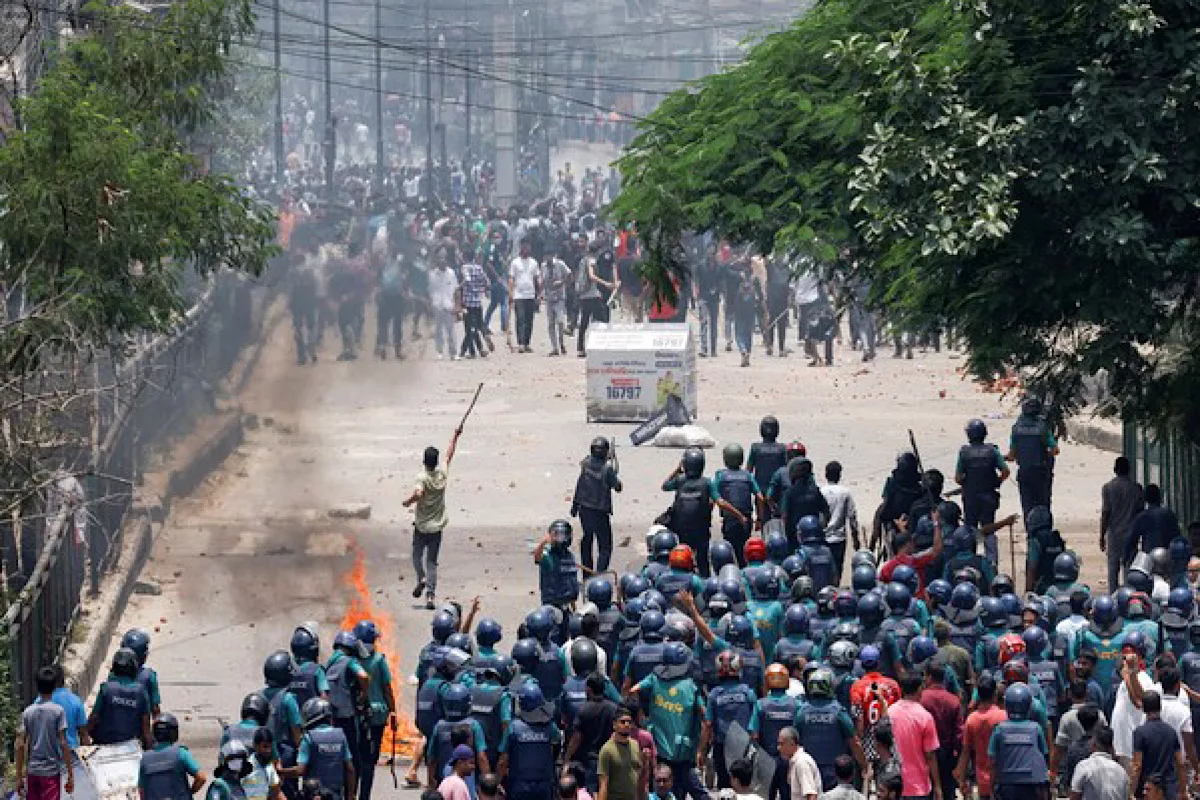The resignation of Prime Minister Sheikh Hasina and her unseemly departure from Dhaka amid violent protests marks a pivotal moment in Bangladesh’s history. This upheaval is not merely a reaction to job quotas but a reflection of deeper, systemic issues within the country. The initial spark for the protests was the reimplementation of a job quota system that many young Bangladeshis viewed as inherently unfair. These quotas, which reserved a significant portion of government jobs for descendants of war veterans, were seen as an obstacle to equal opportunity in an already tight job market.
The students’ frustration quickly morphed into a broader movement against an administration perceived as increasingly autocratic and unresponsive. Economic stagnation has played a significant role in fuelling these protests. Bangladesh, like many other nations, has been hit hard by global economic downturns, exacerbated by conflicts such as the Russia-Ukraine war. High inflation and rising unemployment have made stable government jobs highly coveted, intensifying competition and resentment around the job quota system. Young people, facing bleak job prospects, saw the quotas as yet another hurdle in their pursuit of a better future.
Advertisement
The government’s response to the protests only deepened the crisis. The imposition of curfews and the deployment of the military were seen as draconian measures that underscored the administration’s unwillingness to engage in meaningful dialogue. Reports of excessive force, including the use of rubber bullets and tear gas, have drawn widespread condemnation and highlighted the growing divide between the government and its citizens. Beyond economic woes, there is a palpable sense of disenchantment with the political status quo. Sheikh Hasina’s long tenure has been marred by allegations of human rights abuses, including mass arrests, forced disap pe arances, and extrajudicial killings.
These actions have eroded public trust and fuelled a desire for greater political freedom and accountability. The protests have brought these issues to the forefront, with demonstrators demanding not just economic reforms but also justice and political change. The resignation of Sheikh Hasina, while a significant development, is only the beginning of what is likely to be a challenging transition period. The formation of an in terim government, as promised by the Army chief, offers a glimmer of hope, but the road ahead is fraught with challenges. For Bangladesh to move forward, the interim government must prioritise addressing the root causes of discontent. Economic reforms are crucial.
The government needs to create more job opportunities and tackle inflation. Additionally, there must be a concerted effort to restore public trust in governance. This includes ensuring justice for those who suffered during the protests, releasing detained activists, and upholding the rule of law. Moreover, political reforms are essential to prevent future unrest. The interim government should engage in open dialogue with all political factions, including opposition parties and civil society groups, to create an inclusive political system.
Transparency, ac countability, and respect for human rights must be at the core of this new governance framework. From India’s perspective, the events in Bang ladesh will pose challenges. The new dispensation is un likely to be as friendly towards New Delhi as the previous one, and this will add to the uncertainties in a neighbourhood that already poses challenges.











